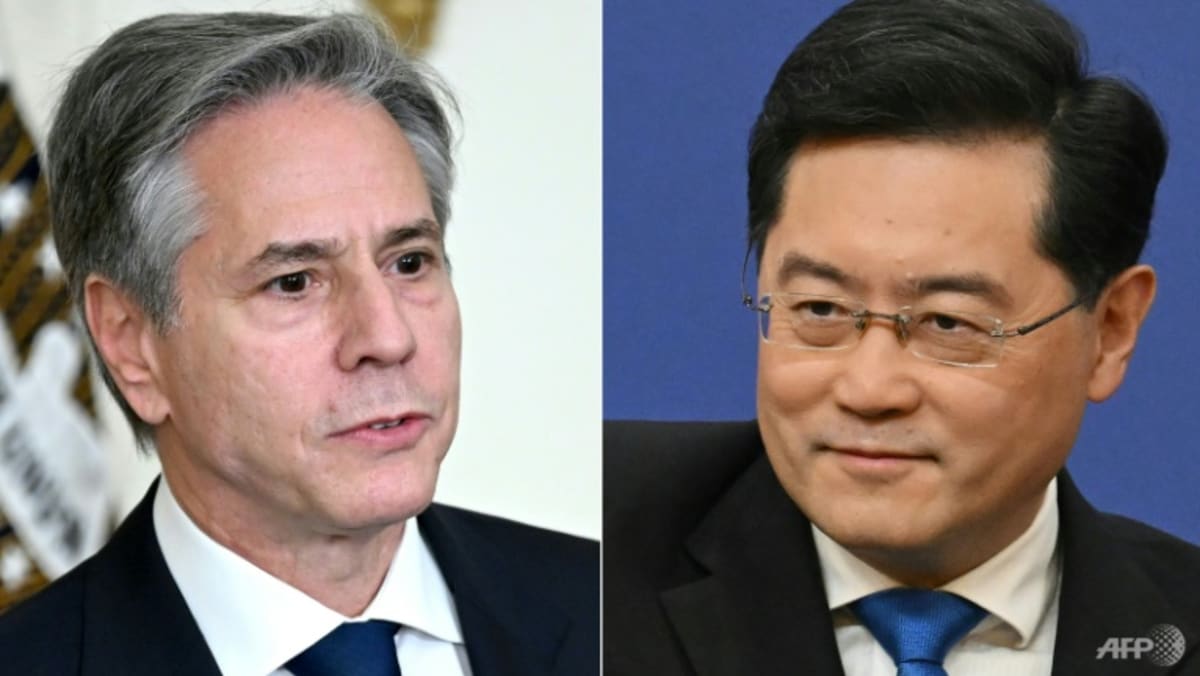
WASHINGTON: Secretary of State Antony Blinken will urge open communication to “responsibly manage” high tensions with China when he pays a rare visit to Beijing this weekend, US officials said.
The State Department confirmed that Blinken will travel this weekend to Beijing on the first trip by a top US diplomat in nearly five years, rescheduling a visit that was scrapped in February as the United States detected what it said was a Chinese spy balloon.
Ahead of the trip, Blinken spoke by telephone to Chinese Foreign Minister Qin Gang and stressed “the importance of maintaining open lines of communication to responsibly manage” the relationship, State Department spokesman Matthew Miller said.
Relations between the world’s two largest economies have tanked in recent years over Taiwan, trade and human rights, among a litany of other issues.
Daniel Kritenbrink, the top State Department official for East Asia, said that the United States was “realistic” about what Blinken could achieve.
“We’re not going to Beijing with the intent of having some sort of breakthrough or transformation,” Kritenbrink told reporters.
Instead, Blinken is coming with a “sincere desire to manage our competition in the most responsible way possible”.
The United States hopes the trip “will, at a minimum, reduce the risk of miscalculation so that we do not veer into potential conflict”.
US policymakers across party lines have spoken of China as the foremost US competitor, even as President Joe Biden also focuses on countering Russia over its invasion of Ukraine.
“We know efforts to shape or reform China over several decades have failed,” said Kurt Campbell, who leads Asia policy at the White House.
“We expect China to be around – to be a major player – on the world stage for the rest of our lifetimes,” he told reporters.
Campbell said the United States also expected more “provocative steps” by China over Taiwan.
China has accused the United States of stirring up trouble in Taiwan through arms sales and visits by senior lawmakers – allegations rejected by Washington, which says it seeks to preserve the status quo by helping Taipei defend itself.
